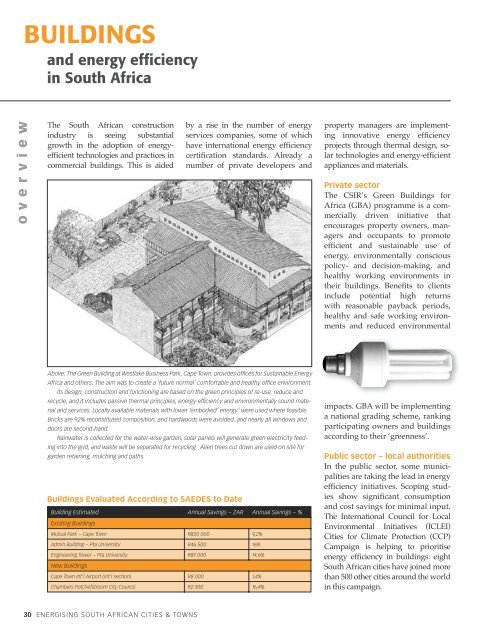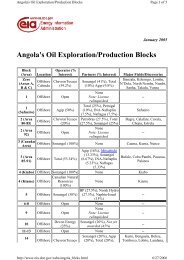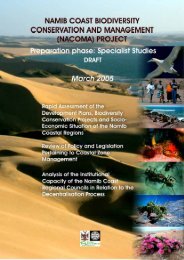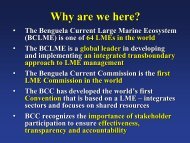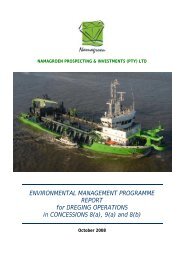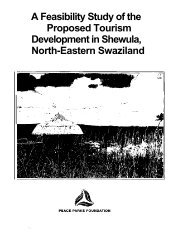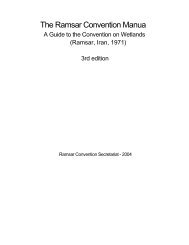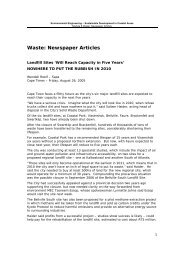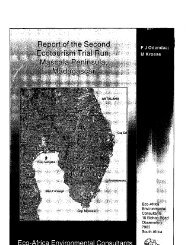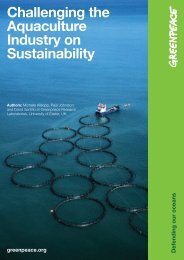BUILDINGSand energy efficiencyin <strong>South</strong> Africao v e r v i e wThe <strong>South</strong> <strong>African</strong> constructionindustry is seeing substantialgrowth in the adoption of energyefficienttechnologies and practices incommercial buildings. This is aidedby a rise in the number of energyservices companies, some of whichhave international energy efficiencycertification standards. Already anumber of private developers andproperty managers are implementinginnovative energy efficiencyprojects through thermal design, solartechnologies and energy-efficientappliances and materials.Private sectorThe CSIR’s Green Buildings forAfrica (GBA) programme is a commerciallydriven initiative thatencourages property owners, managersand occupants to promoteefficient and sustainable use ofenergy, environmentally consciouspolicy- and decision-making, andhealthy working environments intheir buildings. Benefits to clientsinclude potential high returnswith reasonable payback periods,healthy and safe working environmentsand reduced environmentalAbove: The Green Building at Westlake Business Park, Cape Town, provides offi ces for Sustainable <strong>Energy</strong>Africa and others. The aim was to create a ‘future normal’ comfortable and healthy offi ce environment.Its design, construction and functioning are based on the green principles of re-use, reduce andrecycle, and it includes passive thermal principles, energy effi ciency and environmentally sound materialand services. Locally available materials with lower ‘embodied’ energy’ were used where feasible.Bricks are 92% reconstituted composition, and hardwoods were avoided, and nearly all windows anddoors are second-hand.Rainwater is collected for the water-wise garden, solar panels will generate green electricity feedinginto the grid, and waste will be separated for recycling. Alien trees cut down are used on site forgarden retaining, mulching and paths.Buildings Evaluated According to SAEDES to DateBuilding Estimated Annual Savings – ZAR Annual Savings – %Existing BuildingsMutual Park – Cape Town R820 000 9,2%Admin Building – Pta University R46 500 16%Engineering Tower – Pta University R87 000 14,6%New BuildingsCape Town Int’l Airport (int’l section) R8 000 1,4%Chambers Potchefstroom <strong>City</strong> Council R2 300 16,4%impacts. GBA will be implementinga national grading scheme, rankingparticipating owners and buildingsaccording to their ‘greenness’.Public sector – local authoritiesIn the public sector, some municipalitiesare taking the lead in energyefficiency initiatives. Scoping studiesshow significant consumptionand cost savings for minimal input.The International Council for LocalEnvironmental Initiatives (ICLEI)<strong>Cities</strong> for Climate Protection (CCP)Campaign is helping to prioritiseenergy efficiency in buildings: eight<strong>South</strong> <strong>African</strong> cities have joined morethan 500 other cities around the worldin this campaign.30 ENERGISING SOUTH AFRICAN CITIES & TOWNS
LIGHTINGA NUMBER OF SOUTH AFRICAN municipalities are retrofitting city lightsto save money on their electricity bills and reduce carbon emissions.Since joining the <strong>Cities</strong> for Climate Protection (CCP) Programme of theInternational Council for Local Environmental Initiatives (ICLEI) in 2001,Potchefstroom <strong>City</strong> Council has demonstrated innovative planning inthis regard. Using the grant funds provided by USAID and DEAT throughICLEI’s contracts with them, the <strong>City</strong> of Potchefstroom has, among othermeasures, undertaken a multi-faceted upgrade of the airport’s lighting.The uniqueness of this project is its combination of energy efficiencymeasures and development of on-site green energy, which togethersignificantly minimise the use of polluting fossil fuels. In the first phaseof the project, the airport runway was retrofitted with energy savinglight emitters, which provided energy savings in the first year of 25 581kWh or R5 372. The annual saving on CO 2emissions is 20,8 tonsWithin a second phase, the taxiway was also retrofitted with a properlighting system. Potential reductions in demand are projected to amount to31 663 kWh/year, which is calculated to equal R6 649 per year in monetarysavings. The projected annual saving on CO 2emissions is 26.9 tons.The success of this innovative plan to use both energy efficiencyand green electricity supply to reduce the airport’s reliance on fossilfuel is largely a result of local partnering. Various departments withinthe <strong>City</strong> collaborated with one another as well as with the Centre forEnvironmental Management at Potchefstroom University and Aero<strong>Energy</strong>, a private company, to produce the best solution and mosteffective means of implementation.But despite demonstrated long-term savings and environmental andsocial benefits associated with reduced electricity consumption, municipalitiesdo not always prioritise long-term gains over short-term costs.A recent energy audit on a council building in Parowrevealed that by replacing all incandescent lights withcompact fluorescent lights (CFLs), it is possible to attainR20 000 savings per year in electricity costs, thus payingback the initial investment in CFLs more than twice.National governmentNational government is also investing in energy efficiency.As part of the DME-DANIDA Capacity Buildingin <strong>Energy</strong> Efficiency and Renewable <strong>Energy</strong> (CaBEERE)Programme, energy audits were done on the MineraliaBuilding, offices of the Department of Minerals and<strong>Energy</strong> (DME) as well as the National Electricity Regulator(NER) building, both in Pretoria.While all energy efficiency initiatives in <strong>South</strong> Africa todate are voluntary, they may eventually fall under a mandatorylegislative framework. In 1999, the DME publisheda set of voluntary guidelines for commercial buildings – the<strong>South</strong> <strong>African</strong> <strong>Energy</strong> and Demand Efficiency Standard(SAEDES) guidelines. The intent of SAEDES is to reduceenergy consumption and/or demand, thereby improvingenergy cost effectiveness within the commercial sector.OLD LANDFILLSnew energy potentialEKURHULENI METROPOLITAN Municipality(EMM) was the first municipality in <strong>South</strong> Africa toinitiate a pilot project to use methane gas from a landfillsolid waste site as an alternative fuel, in this casefor refuse collection vehicles.This pilot, commissioned in 1999, involved theextraction of methane gas from the Weltevredenlandfill site, which generates about 216 988 tonsof waste annually. It is one of five such facilities inEkurhuleni metropolitan area.The methane gas was purified in a methane purificationplant and a fuel mix of 25% diesel and 75%methane was used in four refuse collection vehicles.The project aimed to:• inform EMM on the potential for using methanegas as an alternative fuel,• demonstrate cost savings and reduced impact onthe global environment,• quantify methane potential from landfill sites,• build capacity within EMM on technology andprocesses to implement this pilot project,• explore possibilities of accessing funding forsuch projects through the Clean DevelopmentMechanism.Due to a number of problems experienced, some ofwhich are listed below, the pilot was discontinued.• Power reduction of approximately 20% whendriving on methane-diesel blend.• Additional time (10 minutes per day) wasrequired by drivers at the end of the day torefuel with methane in addition to dieselrefuelling in the morning.• Breakdowns on the methane extraction systemneeded spares to be imported from Hollandby the company that did the installation.No local supplier is yet available.• Waste collection vehicles were in poor condition,which resulted in a significant number ofmechanical breakdowns.• Poor record keeping and therefore insufficientinformation collected for monitoring andevaluation of the system.Despite these setbacks, the local authority concludedthat there was sufficient evidence to support furtherdevelopment of this industry. A tender documentis being prepared to develop a Feasibility Study inLandfill Gas Development of all Ekurhuleni’s wastedisposal sites.c a s e s t u d yENERGISING SOUTH AFRICAN CITIES & TOWNS 31


